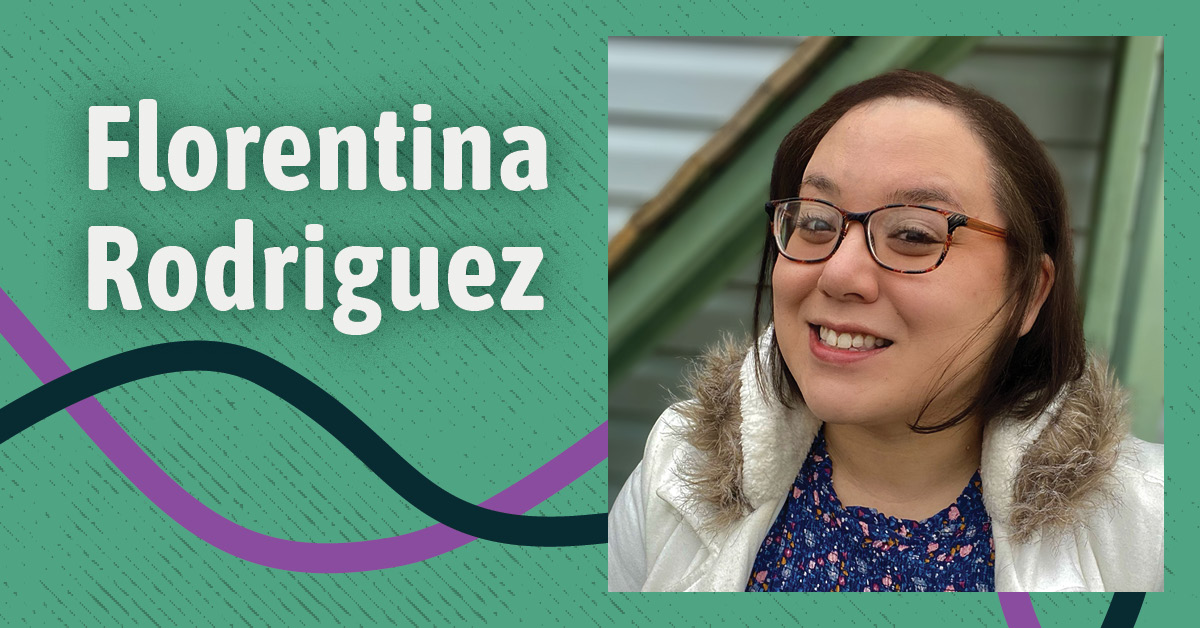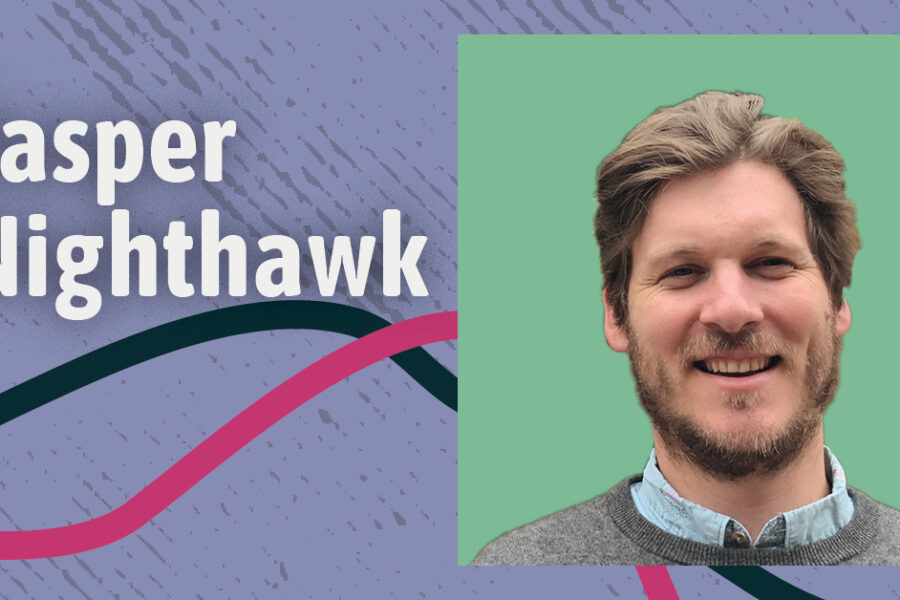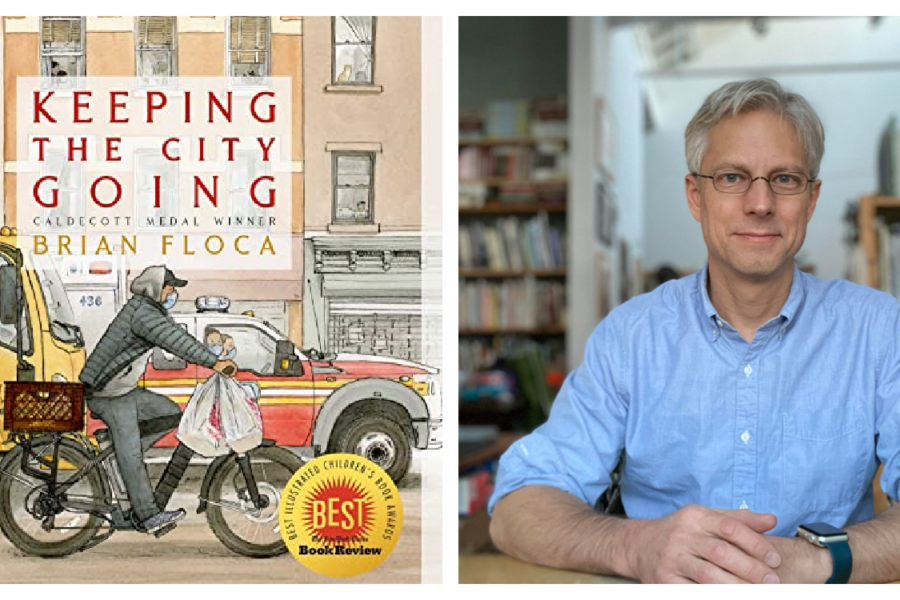Can planting a seed help change the world? Florentina Rodriguez thinks so. This Antioch student and alum today is realizing her dream of creating a more just and equitable society through a nonprofit she founded devoted to community-based seed-saving.
This seemingly small act—keeping the seeds from plants that best survive a particular climate—is a long standing practice that has only in the last century been for the most part replaced by industrial seed production. But that loss has created lasting repercussions in communities most affected by food scarcity and the climate crisis. “When we stop communities from being able to grow their food, we create a cycle of dependency,” Rodriguez explains, “instead of empowering communities.” Rodriguez is using the skills she’s learning at Antioch to help grow that empowerment, one seed at a time.
Combating the Cycle of Dependence
In the 1920s, companies began to copyright seeds, leading to a shift in seed saving culture. Previous to this, seeds were not seen as intellectual property. And in fact, the US Department of Agriculture was itself in the business of distributing seed packets. At the height of the practice of “Congressional seed distribution,” the United States government distributed over a billion free seeds per year, all over the country, for farmers and gardeners to plant.
That program ended in 1926, largely due to lobbying by the American Seed Trade Association. Today, almost all seeds have to be bought from big corporations. “Nowadays the USDA’s two biggest programs are the free lunch program, and SNAP/EBT,” says Rodriguez. This change coincides with the homogenization of our food supply. Within the last hundred years, humanity has lost about 97% of the biodiversity of food that is eaten regularly. And most of the seeds are owned by chemical-pharmaceutical companies. Rodriguez sees a connection between the reliance on government food subsidies and the corporate ownership of seeds.
And her organization is combating that culture of ownership and corporate control of the power to grow food. The Yellow Springs Community Seed Bank empowers individuals by teaching them both how to grow their own food and how to collect and save seeds for future use. The organization also provides a redistribution site—hosting a permanent location where the community can access saved seeds.
The seed library can be found at the Yellow Springs Community Library and the Yellow Springs Farmers Market. Rodriguez also offers skills share events that increase community involvement in Seed Saving practices.
Rodriguez says her favorite parts of running The Yellow Spring Community Seed Library are the community seed events. And it’s exactly this educational passion that has led Rodriguez back to Antioch for another degree. She is currently a student in the Doctor of Education program at Antioch online. (And she’s an alum of Antioch’s bachelor’s programs and its Master of Human Services Administration.)
Rodriguez loves getting to see people learn and develop a skill that not only benefits their home garden but also the community. As she explains, “That’s probably the biggest thing that made me choose to pursue an EdD, versus a PhD.” Eventually, she wants to take on more academic teaching and be a professor. “But right now,” she says, “where I am in my life, I really enjoy Community Based Education.”
The Stars Align to Get a Doctorate
The idea of continuing her education had been in the back of Rodriguez’s mind for some time but was “something that kind of seemed out of reach, or more theoretical,” she says. “Like, it would be nice if this could happen!”
It wasn’t until she was in her undergrad program at Antioch, conversing with her professor Meg Tufano, that she first vocalized her ultimate goal of pursuing a doctorate. Tufano was the first person she told that, “In a perfect world, if all the stars aligned, I would love to go all the way and get a doctorate.” But she did not know if it was possible.
Rodriguez was encouraged and received support from her teachers and peers. She eventually knew, as she explains, “That level of work wasn’t going to be out of reach for me. It’s just something that I wanted to do. I could do it.” She was also working for Antioch Online’s library, which gave her a community of co-workers that supported her and shared their insights on the program. “That made me say, ‘Okay, this is not something that’s too big.’ Made it accessible,” Rodriguez explains.
Her program advisor in the MHSA program, Dr. Mary Ann Short, along with librarian Dana Knott, were instrumental in making her decision to pursue her Doctor of Education in Educational & Professional Practice. Dr. Short reports that she is not surprised by Rodriguez’s success and ambition. She says that Rodriguez “searched for opportunities to apply and blend her academic work with her professional passion.” She adds that, as Rodriguez is the founder of Yellow Springs Community Seed Library, she continues her research and community activism in her doctoral program while creating educational resources, training, and creating a network for engaging communities.
Librarian Dana Knott treasures the time she worked with Rodriguez. As she says, Rodriguez, “truly embodies the Antioch spirit and relies on empathy and care.” Rodriguez’s dedication amazes Knott, and all of this makes Knott glad to see her continue in her education. She is enthusiastic about this student’s future, saying, “Tina is a natural leader.”
Winning Grants to Support New Skills and Projects
With all the support and encouragement, Rodriguez could tell the EdD program was something unique and worthwhile. And the online format allows Rodriguez to take the time she needs to dive deep into the material and engage with other students while balancing her life, raising her kids, and creating the Yellow Springs Community Seed Library. Throughout all her work founding her organization, she had the opportunity to directly use many of the skills she’s learned over her years of study.
This has been paying off in ways large and small. For instance, Rodriguez co-wrote and was awarded a Miller Fellowship grant by the Village of Yellow Springs in support of their Climate Action and Sustainability Plan. Her project was one of several Sustainability Champion projects chosen to serve as pilots.
Rodriguez also recently began a three-month internship with the Organic Seed Alliance. In this organization, she’s building on her work with the seed library and her dissertation within the EdD program. The internship focuses on finalizing a seed-specific federal policy platform to be advocated for in regard to the next Federal Farm Bill—a massive piece of legislation that gets re-negotiated every five years. Rodriguez’s work in this internship may in some small way influence part of this enormous bill that covers supportive access to affordable foods, such as the funding for the SNAP/EBT, and economic and educational assistance for farmers and food producers. And Rodriguez says that “my studies at Antioch have greatly prepared me in being able to engage in this important level of work.”
She has also applied what she learned to create a series of funding pitches that led to partnerships with The Agraria Center for Regenerative Practice and the Yellow Springs Library. All of this learning, and the grants she’s received, have helped Rodriguez reach her goals. She says, “The culmination of this has been me founding the Yellow Springs Community Seed Library.”
Big Goals for a Community Seed Library
As the passionate founder of the Yellow Springs Community Seed Library, Rodriguez is changing the environmental landscape of her community one seed at a time. She believes seeds are a public resource and is training the future skilled seed stewards we need.
Rodriguez explains that the role of a seed steward is to be someone who mindfully and skilfully harvests food and also brings back some seeds to the seed library from their harvest—if it did well. Communal seed saving means attempting to save the best seeds and then redistributing them for free out in the community. Historically, farmers save their seeds from cultivated plants that produced the greatest yields in the hopes of passing along those genetic traits to their next crop. These seeds were once considered a free and public open resource.
And the practice goes even further back. It originated at least 10,000 years ago, as Indigenous communities developed agriculture by adapting wild plants and collecting the seeds of those that grew best, to cultivate the following year. Indigenous groups carry on the tradition of ethical seed practices to the modern day.
For her part, Rodriguez got her start in community-based seed saving education just last summer. She attended a Seed School taught by Beth Bridgeman that was hosted by The Agraria Center for Regenerative Practice in Yellow Springs. This turned out to be transformative and led directly to founding her own seed library.
Today, the seed library that Rodriguez started is a part of a Community Seed Program where she also provides education, training, and skill development workshops on saving seeds for edible, pollinator, and native plants.
Rodriguez champions community-based education—education that focuses on empowering people to reclaim traditional knowledge and to build capacity and self-sufficiency in their communities. It’s work that radiates out and affects many lives. Seed saving practices alone can improve accessibility to healthy foods.
By starting the Yellow Spring Community Seed Library, Rodriguez is bringing back traditions that protect biodiversity, fight for sovereignty rights, and preserve cultural and Indigenous knowledge. She’s combining her skills and passion to cultivate a world of change that will feed the future.



